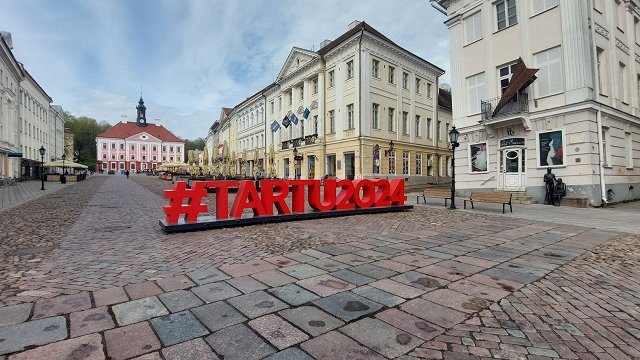According to De Facto, it is likely that for several years the Estonian payday loan company MiniCredit operated as a money laundering machine. Millions of euros might have funneled through the company.
Piret Reiljan, head of Äripäev's investigative desk, said that at the time before a license requirement was introduced there had been around 150 payday loan companies in Estonia.
End of the spectacle
Last spring saw MiniCredit’s revelries come to an end. It failed to acquire a license. One of the former shareholders asked to repay his loan worth more than 350 thousand euros. MiniCredit was unable to do that. Last fall, one of the dirtiest insolvency proceedings in Estonia’s history began.
The company’s documents remain hidden away. "They are not cooperating. I think there is something to hide. Otherwise they would have handed it over. We also don’t have the balance sheet from MiniCredit. We have the annual report from 2014. This is the last one we have," said Kerli Kaasik, a representative of MiniCredit's insolvency administrator office.
For a long time the owners, board and council members have remained the same for both MiniCredit’s Latvian and Estonian companies. Among the most recognizable of them in Latvia was, for example, the banker Rolands Pētersons.
A few years ago Latvia’s finance authority, the Finance and Capital Markets Commission, fined him and other PrivatBank board members over the risks caused to the bank in connection with money laundering.
Maksims, the son of former banker Valērijs Kargins of the collapsed Parex Bank was alongside the other suits exposed.
Millions withdrawn from Citadele accounts
While it’s possibly just a coincidence, noted De Facto, MiniCredit’s account was set up at Citadele, the successor to Parex Bank, which was co-owned by Valērijs Kargins, father of MiniCredit’s former shareholder Maksims Kargins.
Citadele is not one of Estonia’s most popular finance institutions. Conspicuously, however, about seven million euros in cash were withdrawn from its accounts over three years.
In 2011 about €800,000 were withdrawn from the bank account. A year later over five million more were withdrawn, and about a million euros in 2013. Afterwards, cash withdrawals continued in smaller amounts.
It is not known whether Citadele bank had notified the authorities of any possible suspicions. The law prohibits the bank from disclosing this information to the media.
Millions withdrawn but revenues in thousands
According to information obtained by De Facto, two persons – Sergejs Dubins and Vitālijs Jaroševičs – withdrew most of the cash from the account. Jaroševičs was was the long-time head of both Estonia’s and Latvia’s MiniCredit.
"MiniCredit had yearly earnings around hundreds of thousands, but the money was withdrawn in millions. This does not come together. And we have the fact that people behind the company were rather colorful. I personally think that someone just had to legalize some money, and [they] put the money in MiniCredit and then took it out from the other door," – said Reiljan.
De Facto learned that one Dmitrijs Kovaļs is among the persons that have transferred money to MiniCredit. He was formerly a top-level executive at Saules Banka. For the last few years he worked as a finance consultant. However his name had emerged in the media in connection to international money laundering cases. De Facto was unable to reach him for commentary as he died a few weeks ago.
Meanwhile MiniCredit’s former head Vitālijs Jaroševičs, who withdrew cash from the accounts, did not reply to De Facto's questions by the end of the week despite promises to the contrary.
Potential ties to a mastermind
Industry experts interviewed by De Facto said it’s possible Jaroševičs had been working for a much more influential person—Kristian Kesner. He had official ties to the Estonian and Latvian companies only during their beginnings. However what followed testifies to the fact that Kesner’s influence did not wane. De Facto discovered that it was Kesner who was keeping one of MiniCredit’s bank cards for a long time.
In Estonia, reported the show, MiniCredit’s credit card was used to pay bills in this strip club, called Excellent. The binges took place in other night clubs in Tallinn as well. While in Rīga the credit card was used to pay at the XXL gay club, and the shadowy strip joint Ampir. It was also used to pay for trips to the sunniest cities around the globe.
A few years ago Kesner was declared insolvent, the show reported. However he keeps on driving luxury cars, including a Maybach sports car. What’s most interesting is that it’s being paid for by DirectCom, a company supposedly not linked to him. It’s one of the companies set up by former MiniCredit suits. They use them to try to stay in business by reclaiming debts from MiniCredit’s clients.
The recently set up companies are located in one of Tallinn’s poshest office buildings—right where MiniCredit once operated, just on a lower floor. However the employees deny having any ties to these companies and Kesner himself.
MiniCredit insolvency under investigation
According to De Facto, a criminal case has been started in connection to the uncovered facts in MiniCredit’s insolvency proceedings.
The current head of Latvia’s MiniCredit office declined giving an interview. She stressed that the companies are no longer related to one another.
In total about 1.2 million euros are to be recovered from MiniCredit. However the company’s accounts are empty. The last testimony to MiniCredit’s luxurious lifestyle – the leased Porsche Cayenne Turbo sports car – was disposed of only recently.





























